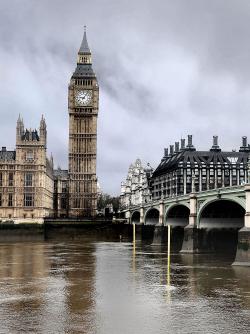God Reveals His Plan!
The biblical Holy Days reveal a coming time when Jesus Christ will reign over the whole world! Are you preparing for that time now by walking in His footsteps and keeping those days?
Around this time of year come several Holy Days foreign to most non-Jews. The first is Rosh Hashanah—the Feast of Trumpets. Yom Kippur—the Day of Atonement—comes ten days later, and five days after that come the seven days of the Feast of Tabernacles, followed immediately by the Last Great Day.
Among the Christians who observe these days are members of the Living Church of God, the sponsor of Tomorrow’s World. Some might wonder why non-Jews would observe these days—why not keep traditional holidays like Christmas, Easter, Epiphany, St. Valentine’s Day, and Halloween?
The answer is simple for anyone with an open mind. Jesus said that “the hour is coming, and now is, when the true worshipers will worship the Father in spirit and truth; for the Father is seeking such to worship Him. God is Spirit, and those who worship Him must worship in spirit and truth” (John 4:23–24). Good intentions are not good enough—according to Jesus, we must also worship in truth. And the truth is that God gave us special days to teach us about His plan of salvation, while the pagan world gave us non-biblical traditions and sewed Christ’s name onto them. Which observances are the correct ones? And does it matter?
A few years ago, young people wore bracelets with the letters WWJD, standing for “What Would Jesus Do?” That is a fair question, and it is best answered by Jesus Himself. What would Jesus do if He were walking the earth today?
Following in Jesus’ Footsteps
The answer is obvious: He would do exactly what He did when He walked the earth 2,000 years ago (Hebrews 13:8). And what did He do? He kept the Passover and the Feast of Unleavened Bread (Luke 2:41–43; Matthew 26:17–20). Jesus kept the Feast of Tabernacles and the Last Great Day, even under the threat of death (John 7:1–2, 10, 37).
Every one of the Apostles, including the Apostle Paul, also observed these days (Acts 2:1; 20:16; 1 Corinthians 5:7–8; 16:8). This is only a small sample of the references we could cite. And while the Bible describes Jesus’ birth, nowhere in Scripture do we find an annual celebration of it—nor do we find Easter or any of the other popular “Christian” holiday celebrations.
But does it matter?
Do you realize that without observing and understanding God’s Holy Days, it is impossible to fully understand His plan for mankind? If you have never read our resource The Holy Days: God’s Master Plan, be sure to order a free copy from the Regional Office nearest you or read it online right here at TomorrowsWorld.org. You will discover answers to questions that you may have wondered about all your life. What happens to babies who die only a few days old, or to those who live full lives but never hear of Christ? Why, if God is all-powerful, are so few seemingly saved today? Will the source of evil always be with us? Do we have a part in salvation, or is it “all done for us”? How is the world going to end? What is the reward of the “saved”? All these questions and more are answered by the biblical Holy Days and Festivals.
Readers of Tomorrow’s World (or viewers of our telecast by the same name) sometimes criticize us for saying that Christ will not come tonight; others object when we say that the time of His coming is near. They object, in part, because they do not understand God’s plan for mankind as revealed in His Holy Days, and they fail to understand the context of Matthew 24:36, which tells us that no one knows the day or the hour of His return.
The context of this passage begins with a question from Jesus’ disciples: “What will be the sign of Your coming, and of the end of the age?” (Matthew 24:3). Jesus then described various signs to look for, including the abomination of desolation (v. 15). He also warned that a great tribulation would precede heavenly signs (vv. 29–30). Christ will then return with the sounding of a trumpet: “And He will send His angels with a great sound of a trumpet, and they will gather together His elect from the four winds, from one end of heaven to the other” (v. 31).
Jesus then asked us to learn a lesson from the fig tree: “When its branch has already become tender and puts forth leaves, you know that summer is near. So you also, when you see all these things, know that it is near—at the doors” (Matthew 24:32–33).
Clearly, certain events must happen first, and we are to discern from certain signs the general time frame. Christ tells us that knowing the exact day and hour of His return is another matter (v. 36), but He follows this up with another sign to look for (vv. 37–38).
The Festivals and Holy Days of God lay out, step by step, God’s plan of salvation. And the first of what we often call the “Fall Festivals” (as Jerusalem is in the northern hemisphere) is the Feast of Trumpets. This Festival tells us that Jesus will not return tonight. Jesus said that “He will send His angels with a great sound of a trumpet” (v. 31), and the Feast of Trumpets depicts the blowing of seven trumpets—each one ushering in an event that will shake this earth. Have any of the six trumpet blasts, with their cataclysmic events as revealed in Revelation 8–9, yet occurred? Has anyone seen a 200-million-man army heading westward out of Asia? If not, Christ cannot come tonight. It is only when the seventh trumpet is blown that Jesus Christ will return (Revelation 11:15).
But can’t “the rapture” happen at any time, as so many have been taught? That is an honest question that many sincere people ask—but it represents a false concept, and if you would like to learn the truth behind this misguided doctrine, let us know and we will send you our free DVD Is the Rapture Your Incredible Future? or our free article “The Secret Rapture: False Hope for End-Time Christians!”
God’s Promise of Hope
What we’ve discussed is just one small part of the big picture—there is so much more that is clarified by keeping the Holy Days God instituted. One large Sabbath-keeping group teaches that, after Christ’s return, the earth will be a wasteland with no one left alive. Yet the Feast of Tabernacles reveals just the opposite! When Jesus returns as King of kings, one of His first commands will be that all nations must send representatives to Jerusalem to keep this Feast (Zechariah 14:16). Imagine: Christ rules as King over all the earth (v. 9), His command goes out—but no one is alive to answer the call. Preposterous.
And no, these representatives are not spirit beings, as Scripture plainly reveals:
Whichever of the families of the earth do not come up to Jerusalem to worship the King, the Lord of hosts, on them there will be no rain. If the family of Egypt will not come up and enter in, they shall have no rain; they shall receive the plague with which the Lord strikes the nations who do not come up to keep the Feast of Tabernacles. This shall be the punishment of Egypt and the punishment of all the nations that do not come up to keep the Feast of Tabernacles (vv. 17–19).
Each year, members of the Living Church of God gather to be reminded of what this great Festival pictures—the time when Jesus Christ will bring peace to this troubled planet for a thousand years. Of course, peace will not come while mankind’s great adversary, Satan the devil, is still around. But the Day of Atonement addresses that problem, picturing the day when Satan will be removed from influencing mankind.
This is merely a foretaste of what God has in mind for those who accept the challenge to keep the Holy Days that He designed to explain His wonderful plan of salvation. Let us know when you are ready to take up that challenge and learn about the most exciting truths ever given to mankind!






